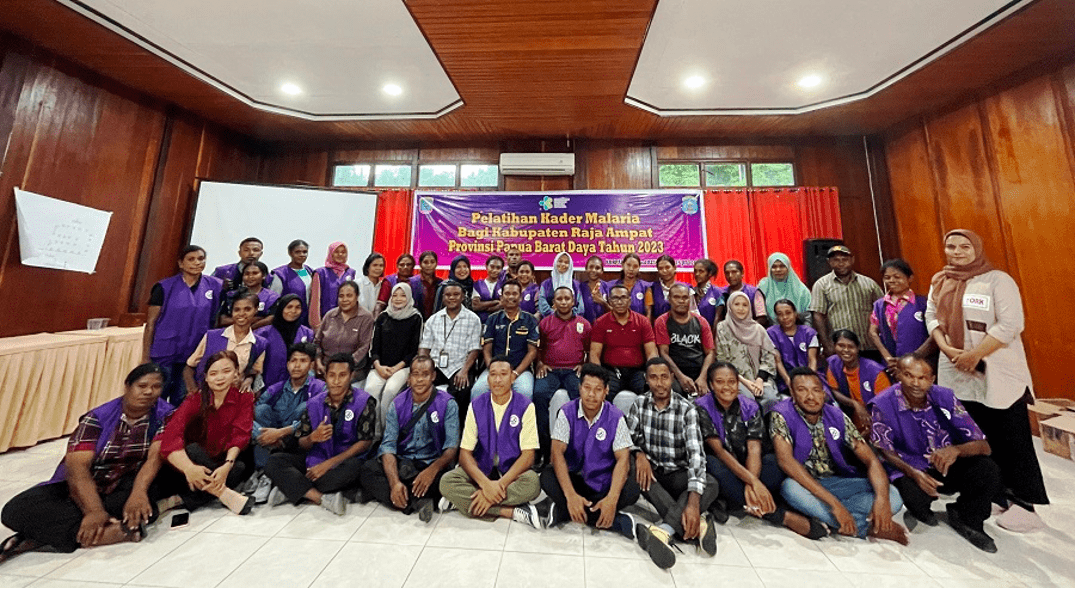The World Health Organization, as part of its Malaria Control and Prevention Programme, recommends various strategies for treating malaria cases in endemic malaria areas such as Papua like the establishment of control centers with rapid diagnosis and free treatment, use of pesticides and free distribution mosquito nets treated with insecticide.
Currently, malaria is still a problem in Indonesia, especially in several provinces, namely Papua, West Papua, Maluku, North Maluku and NTT. Although the number of cases and deaths have decreased, this is still a concern and calls for serious efforts to reduce the number of deaths by 2030, the year when malaria will be fully eliminated in Indonesia.
To increase the effectiveness of malaria control and eradication programs, two key roles need to be addressed, namely the role of community and community leaders, including government and NGO-trained, cadre, or can be called as volunteer malaria specialists. Interventions by cadre and health workers include malaria education, practical use of rapid malaria diagnostic tests, and treatment monitoring.
Cadres are volunteers recruited from the community and tasked with providing health services. Cadres are members of the community who are willing, able and have the time to volunteer for healthcare activities. In some countries, these people are called volunteers, whose role it is to accelerate the success of the malaria eradication program in Papua.
Mapping community leaders (cadres) is needed to accelerate case detection, in line with the World Health Organization (WHO) recommendation to replace malaria control programs with malaria elimination programs.
One of the efforts to reduce malaria cases is community education activities conducted by malaria experts. Papuan malaria teams as cadre have been established and trained in community health centers. The role of the groups until now has been to monitor the use of anti-malarial drugs, provide advice to the community about sanitary conditions in the environment and provide education in the form of counseling.
The first is to train people who want to become rural malaria health workers with malaria content. The purpose of this presentation is to raise awareness of malaria in rural areas. This topic covers causes of malaria, symptoms of malaria, infectious diseases of malaria, prevention of malaria and treatment of malaria. This topic was presented by a source in the field of malaria.
Secondly, to inform and explain the role of malaria cadres in reducing the number of malaria cases in rural areas. The role of cadres in malaria cases is very important because cadres actively provide information about malaria and can reduce the number of malaria cases and are supported by community participation. Malaria officers in the villages also assist the clinic in implementing many of the clinic’s work plans.
Cadres who are community leaders conduct outreach or provide information about malaria in every community activity to increase public knowledge about malaria. In addition, the group also engages the community in malaria prevention. This can increase community participation because people who become community leaders remain role models for the community, so people will want to participate if that person encourages them. Community-based malaria prevention is an effort to prevent and create a clean and healthy environment to prevent the spread of malaria-carrying mosquitoes.


